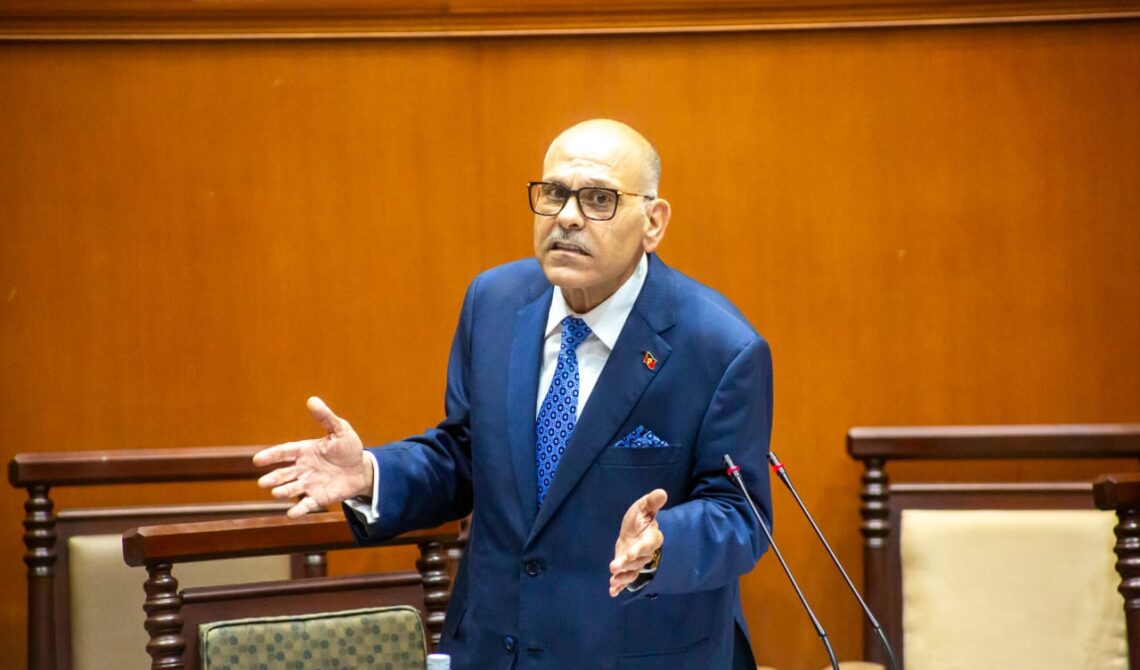Mr. Speaker,
The Bill to amend the Magistrates’ Code of Procedure Act, Cap. 255 introduces several changes that increase the sentencing powers of magistrates and align bail provisions with more serious offenses. But we need to evaluate its effectiveness, especially regarding whether or not the amendment to section 62 is necessary in light of certain provisions of the Bail Act of 2019:
Key Observations:
1. Increased Sentencing Powers (Clause 4)
– Strength: The amendment to section 98(1) significantly increases the penalties that a magistrate can impose, extending the sentencing powers from 2 years to 5 years for a single offense and from 5 years to 7 years for multiple convictions sentenced together. This change gives magistrates more flexibility in dealing with more serious offenses within the scope of their authority, especially given the rising crime rates.
– Possible Issue: While this gives magistrates the power to impose longer sentences, it also increases the risk of disproportionate sentencing for less serious offenses that might still fall under their jurisdiction. Care should be taken to ensure that the increased penalties are applied judiciously and are proportional to the offense.
Improvement Suggestion: Introduce clear sentencing guidelines that accompany this increase in powers to ensure that magistrates have a framework for determining when to apply the higher penalties. This can help prevent inconsistent sentencing and avoid disproportionately harsh penalties for minor offenses.
2. Power to Remit Cases to the High Court (Clause 5)
– Strength: The new section 100 grants magistrates the discretion to remit cases to the High Court when they believe that the sentencing powers available to them are insufficient based on the evidence presented. This is a positive step, as it ensures that serious cases that require harsher penalties can be handled appropriately.
– Possible Issue: Without clear criteria for remitting cases, there may be inconsistencies in how magistrates decide which cases to remit. Furthermore, frequent referrals to the High Court could lead to bottlenecks in the system.
Section 100 seems unnecessary because if the offence is hybrid (triable either way), the file must be sent to the DPP for his/her approval to proceed summarily or in the High Court.
So, if the DPP is worth his/her salt, then having reviewed the file, he or she must have assessed the evidence from the witness statements and direct the police accordingly how to proceed. Furthermore, this process is hardly ever used and has not been used for decades as far as I can recall.
Improvement Suggestion: Provide guidelines or criteria for remitting cases to the High Court, specifying the types of cases or offenses where such a referral is appropriate. Additionally, there could be a provision for review mechanisms to ensure that magistrates are not overburdening the High Court with cases that could be resolved within their sentencing authority.
3. Bail Restrictions for Indictable Offenses under the Anti-Gang Act (Clause 3)
– Strength: The amendment to section 62(3) adds indictable offenses under the Anti-Gang Act 2024 to the list of offenses for which magistrates are not permitted to grant bail. This is in line with efforts to combat gang-related crimes, which have serious implications for public safety.
– Issue with Overlap: Section 8 of the Bail Act No. 19 of 2019 already addresses restrictions on bail for serious offenses. The need for an additional restriction in this Bill might create overlapping or redundant provisions, unless the scope of the Anti-Gang Act is substantially different from what is already covered by the Bail Act.
– Improvement Suggestion: Mr. Speaker, the Bail Act sets out quite clearly the offences with which the magistrate cannot grant bail. It would be better and cleaner to amend the Bail Act of 2019 to include in it, offences under the Anti-Gang Legislation.
Furthermore, the Magistrates Code of Procedure Act amended that section 62 in 2004 and in 2005, but that section 62 is not used by the magistrates nor the lawyers nor the DPP, because it is already deemed to be repealed impliedly by the Bail Act 2019, since in law, the later statute repealed the older statute impliedly if it covers the same thing.
Therefore, amending section 62 is not only confusing… it has already been impliedly repealed by Section 8 of the Bail Act 2019.
Under the doctrine of Implied repeal, even where parliament does not expressly repeal an earlier statute, the later statute is deemed to have impliedly repealed the earlier statute touching on the same subject matter or issue.
Section 8 of the Bail Act No. 19 of 2019 already set out the various offences to which bail cannot be granted; and all that is needed is to make the slight adjustment under the Bail Act.
A glaring error under the Bail Act 2019 is that Attempted Murder is not included in one of the non-bailable offences. Hon. Attorney General, this needs to be addressed.
Mr. Speaker, I am saying in closing, let us ensure the Bill enhances the magistrates’ powers while maintaining clarity and fairness in sentencing and bail decisions.

